CCCEU Chairman Liu Jiandong Shares Insights with CGTN on bilateral relations ahead of China-EU Summit
On the eve of the 25th China-EU Summit, Liu Jiandong, Chairman of the China Chamber of Commerce to the EU (CCCEU), sat down for an exclusive interview with CGTN in Beijing. Joined by Jens Eskelund, President of the European Union Chamber of Commerce in China (EUCCC), Liu engaged in an in-depth discussion on China–EU economic and trade relations under the theme "Enhancing Trust for Resilient Partnerships." The dialogue marked another successful collaboration between the two major business chambers, and the first time the two presidents appeared together in an interview with a Chinese state media outlet.
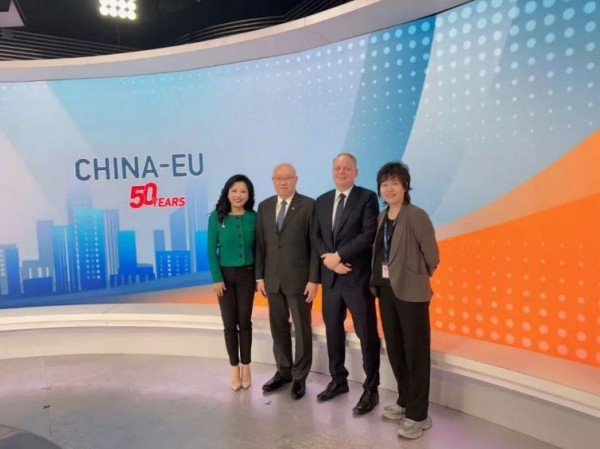
Liu emphasized that the meeting between Chinese and the EU leaders not only drew global attention but also carried profound significance for the stability of the global economy. Standing at the historic milestone of the 50th anniversary of diplomatic ties, the meeting in Beijing comes at a time when unilateral trade protectionism is undermining global trade and growth. Liu noted that the summit serves both as a reflection on five decades of partnership and as a strategic guide for the future of China–EU relations, injecting certainty and a stabilizing anchor into a world facing rising volatility.
Liu underscored that cooperation and mutual benefit remain the essence of China-EU economic and trade relations, with partnership as the prevailing trend. He stressed that healthy competition can drive mutual progress. For Chinese enterprises, Europe is a key market for global operations, and Chinese companies, particularly in new energy and environmental technologies, are playing an increasingly important role in Europe's industrial upgrading.
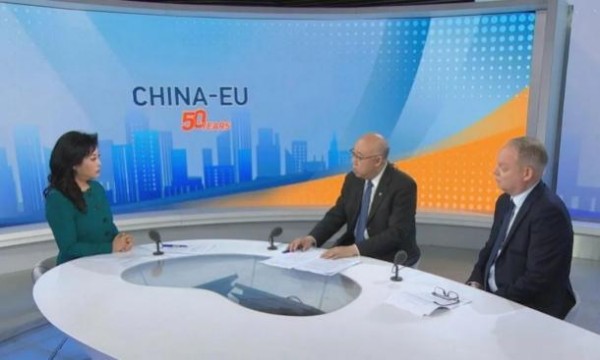
On digital infrastructure and industrial applications, Liu pointed to the vast potential for collaboration between China and the EU. He added that green development forms the foundation of bilateral cooperation, as both sides actively support low-carbon transitions and share broad common interests in tackling climate change.
Addressing the EU's decision to impose additional tariffs on Chinese electric vehicles, Liu stated that the competitive edge of China's EV industry stems from relentless technological innovation and fierce market competition, not from government subsidies. In fact, many companies in Europe's auto sector have voiced rational perspectives. Oliver Zipse, Chairman of BMW Group, and Ola Källenius, Chairman of Mercedes-Benz Group and President of the European Automobile Manufacturers' Association (ACEA), have repeatedly said that tariffs are not the solution. On the contrary, competition from China, they argue, will drive European automakers to improve and deliver better products.
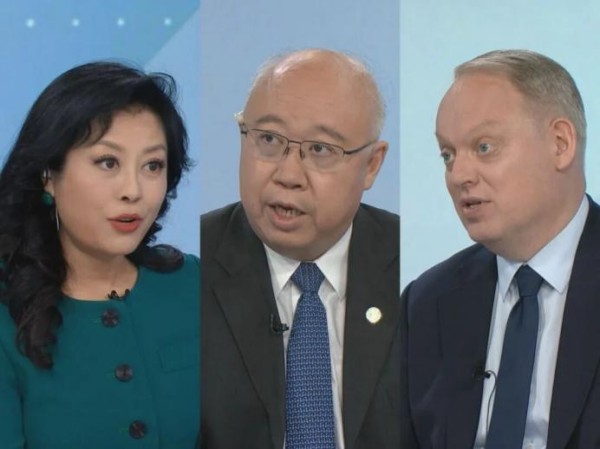
Liu also noted that in mid-July, the CCCEU's Automotive Working Group met with member of European Commission Cabinet Maroš Šefčovič, and Chair of the European Parliament's Committee on International Trade Bernd Lange. The two sides held frank, friendly, and constructive discussions on deepening cooperation in the automotive sector, which stands as a clear sign of their shared willingness to resolve issues through dialogue.

 Login
Login Login
Login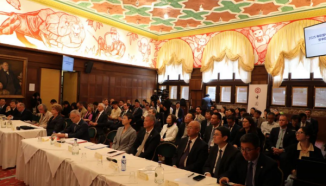 2025 China-EU Business Forum Draws 100+ Companies
2025 China-EU Business Forum Draws 100+ Companies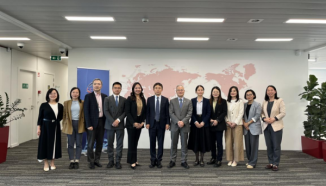 CCCEU Holds Automotive Working Group Meeting to Discuss Developmentand Compliance Issues in Europe
CCCEU Holds Automotive Working Group Meeting to Discuss Developmentand Compliance Issues in Europe



